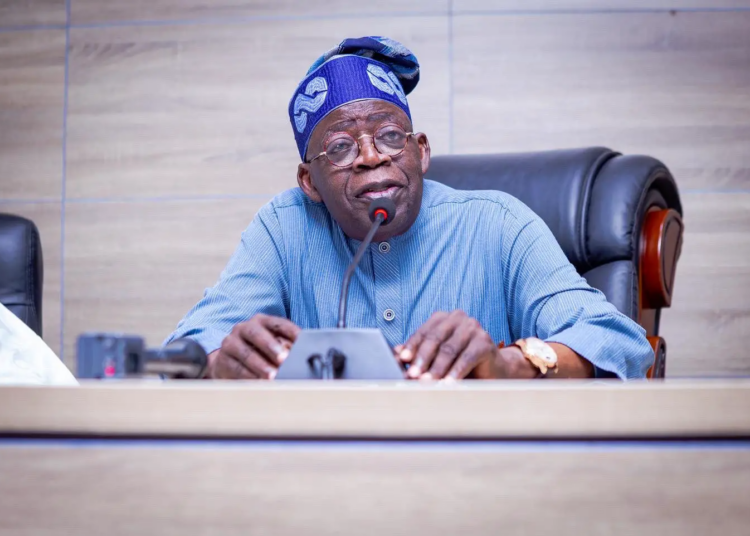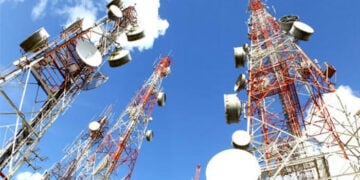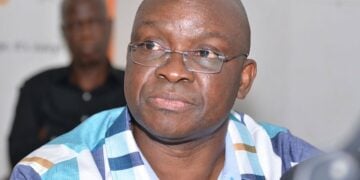Chairman of the Economic Community of West African States, President Bola Ahmed Tinubu of Nigeria, is turning up the heat on the military government that deposed President Mohamed Bazoum of Niger republic with a host of new sanctions and a letter to Nigeria’s Senate seeking approval for military intervention to restore constitutional order in Niger.
The letter was sent to the Nigerian Senate just as ECOWAS Defense chiefs were ending their strategy meeting on possible intervention in Niger.
But it appeared yesterday that the leadership of some countries in the region may be developing cold feet and are expressing a preference for a diplomatic solution.
According to a report by France24 quoting Abdel-Fatau Musah, ECOWAS commissioner for Political Affairs, Peace and Security, the defence chiefs after their meeting in Abuja, drew up a plan for a possible military intervention if coup leaders do not stand down.
“All the elements that will go into any eventual intervention have been worked out, including the resources needed, and including the how and when we are going to deploy the force,” said ECOWAS commissioner Abdel-Fatau Musah.
ECOWAS will not divulge to the coup plotters when and where it will strike, however – a decision that will be taken by the heads of states, Musah added.
Nigeria’s Chief of Defence Staff (CDS), General Christopher Musa, at the end of the meeting, said the Coup d’etat in Niger Republic was a blatant disregard for the fundamental principles of ECOWAS integration and stability.
General Musa who is the chairman, Committee of Chiefs of Defense Staff (CCDS) ECOWAS, stated this at the close of a 3-day extraordinary meeting with his colleagues from the region on the political situation in Niger Republic.
He advised that dialogue and negotiation should be at the forefront of the regional body’s approach in resolving the crisis in the Republic of Niger.
Infographic showing strength of Nigerian and Nigerien military

Present at the meeting were defence chiefs from Nigeria, Benin, Ghana,Togo, Sierra Leone, Liberia, The Gambia, Cote D’Ivoire, Cabo Verde, Senegal and Guinea Bissau.
However, those conspicuously absent were defence chiefs from Niger, Mali, Guinea and Burkina Faso.
General Musa said the committee recognised the gravity of the situation and the urgent need for a well-coordinated response.
He added that the discussions have yielded valuable insights and actionable recommendations.
“We have acknowledged the need for a comprehensive approach that encompasses political, security, and diplomatic dimensions. It is imperative that we translate our deliberations into concrete actions that can effectively address the crisis and prevent a recurrence in the future.”
He charged the ECOWAS Committee of Chiefs of Defense Staff to continue to serve as a platform for regular engagement, information sharing, and joint planning.
“We must leverage our collective expertise and resources to address emerging security challenges promptly.”
Security experts are however engaged in debate on the wisdom of a military intervention and whether the steps that are being taken by ECOWAS leaders are real or just a bluff”, he noted.
Prof Femi Badejo, a former lecturer at the University of Lagos and also one-time deputy special representative of the UN secretary general for Somalia believes a military intervention in Niger would be unprecedented for ECOWAS.
Speaking with LEADERSHIP Weekend, he acknowledged humanitarian interventions in Liberia and Sierra Leone, in which case, people moved in to save lives.
“But that is not what we are facing in Niger, where it is not a humanitarian problem.
“It is a political problem of wanting to restore the overthrown government of President Bazoum. It would be speculative on my part to say that ECOWAS would go ahead and intervene militarily because I don’t know if it is a bluff.
“What does it cost you to get Senate approval? What does it cost you to push in the media that there is a plan of attack? Not much. But I can’t say, only those who are close to policy. How many countries are interested and are going to show up and be counted on the battlefield?” He asked.
Speaking further, Prof. Badejo said, “I think that we should pursue diplomatic settlement because spilling of blood will not necessarily restore Bazoum to power. There is nothing that guarantees that he can come back in place with an attack. All those people who have been rounded up; they are at the mercy of the coup plotters. So, I don’t know what will be achieved at the end of the day.”
Dr Johnson Sandy, the chairperson for the Regional Center for Governance and Security Cluster and also the current the chairperson of the African Union Economic Social and Cultural Council, is convinced that a military intervention will take place because the international community, particularly the United States of America, will not let the coup in Niger stand.
He noted that the country, unlike Guinea, Mali, Burkina Faso and Chad, is a regional base in the fight against terrorism.
Speaking from Sierra Leone, he said political stability in Niger matters to Nigeria and the rest of West Africa and Sahel now.
And on the other hand, political instability in Niger, he said, has implications for the global fight against international terrorism, violent extremism in the Sahel and in the Lake Chad Basin.
Dr. Sandy said, “President Bazoum -has he proved to be a strong ally in the fight against transnational organized crime and terrorism and global jihadist movements operating in the Sahel.
“France, USA, India, China, Germany etc, have deployed, for several years now, military stabilization forces – with extensive bases in Niger. It appears there is an increased level of trust and confidence by the West and ECOWAS in the strategic leadership in the 2 years of President Bozoum’s government.
“Regional analysis suggests that he has been an outstanding minister Defence and lately President – commander in chief of the Niger armed forces. Thus, with his leadership, a collective security approach in the fight against international terrorism has been successful in the last two year.”
The request by President Tinubu to the Senate however suffered a setback after some northern senators, led by Abdul Ningi cautioned against the use of force in Niger, saying they “take cognizance of the efforts of the ECOWAS leaders under the chairmanship of our Dear President, Bola Ahmed Tinubu, in resolving the situation in Niger Republic.
“The emphasis, however, should be focused on political and diplomatic means to restore democratic government in the Niger Republic.
“We also take exception to the use of military force until other avenues as mentioned above are exhausted as the consequences will be casualties among the innocent citizens who go about their daily business. Besides, about seven northern states shared the border with the Niger Republic namely Sokoto, Kebbi, Katsina, Zamfara, Jigawa. Yobe and Borno will be negatively affected,” spokesman of the group,” Sumaila Kawu added.
ECOWAS leaders gave Abdourahamane Tchiani a one-week ultimatum to return Bazoum back to power or face military action.
The one-week deadline comes to an end on Sunday.
Benin Republic and Senegal have however come out strongly in favour of a diplomatic solution, but maintain a position of support should ECOWAS seek to use force.
President Tinubu also informed the Senate that ECOWAS borders are now closed to Niger Republic following the seizure of power by the country’s military.
Tinubu informed the Senate about the cutting off of electricity supply to Niger, adding that more sanctions are underway.
The letter by Tinubu, which was read on the floor of the apex legislative chamber during plenary by the president of the Senate, Senator Godswill Akpabio, said the ECOWAS States will insist power returned to the democratically elected leaders of the country.
Aggrieved military junta had on July 26 toppled the democratically elected president, Mohamed Bazoum, and took over the leadership of the country. The soldiers were his guards.
President Tinubu who is also the chairman of the Economic Community of West African States, had met with some other ECOWAS leaders on Sunday July 30 to discuss appropriate ways to restore democracy in Niger.
‘Devastating Consequences’
Detained at the presidential residence in Niger’s capital Niamey, Bazoum, a 63-year-old philosophy graduate elected in 2021, said in his first remarks since the coup that he was a hostage and in need of U.S. and international help.
“If it (the coup) succeeds, it will have devastating consequences for our country, our region and the entire world,” he wrote in a Washington Post opinion piece, backing ECOWAS’ economic and travel sanctions.
Russia, whose private mercenary Wagner group has cheered the coup, said on Friday any interference from non-regional powers such as the United States was unlikely to help and repeated its call for a return to constitutional rule.
Yevgeny Prigozhin, the head of Wagner which has forces in Mali and the Central African Republic, last week said his forces were available to restore order in Niger.
The 15-member ECOWAS bloc sent a delegation to Niamey seeking an “amicable resolution”, but a source in the entourage said a meeting at the airport with the junta’s representatives yielded no breakthrough and they flew out in the early hours.
“All our efforts to meet with the leader of the junta failed. He rather sent five-member representatives to meet with us,” the Nigerian presidential source said.
“After the meeting that ended at midnight, they said they heard all we have said and that they will get back to us. We left Niamey immediately.”
The junta has denounced outside interference and said it will resist any aggression. Tiani served as battalion commander for ECOWAS forces during conflicts in Ivory Coast in 2003, so he knows what such intervention missions involve.
Support for him from fellow juntas in Mali and Burkina Faso also undermines West African unity over Niger.
The Niger junta has cited persistent insecurity as the main justification for seizing power, even though data on attacks shows security has actually been improving.
On Friday, they cut off diplomatic relations with Nigeria after peace talks initiated by the Economic Community of West Africa States (ECOWAS) to resolve the ongoing crisis in the country appear to have failed.
The West African regional bloc ECOWAS had issued a seven-day ultimatum to the military regime led by General Abdourahmane Tchiani to reinstate the ousted President Mohamed Bazoum to avoid possible intervention by the bloc to restore democratic order in the beleaguered country.
Nigeria’s President Bola Tinubu had sent a high-powered delegation led by Nigeria’s former head of state General Abdulsalami Abubakar to the country to meet with the coup leaders on Thursday which only met with representatives of the junta.
Subsequently, Niger severed ties with Nigeria, Togo, France, its coloniser, and the United States.
“The functions of the extraordinary and plenipotentiary ambassadors of the Republic of Niger to France, Nigeria, Togo and the United States are terminated,” Radio France International quoted one of the putschists as having said on national television.
The democratically elected president, Bazoum, who was toppled on July 26 has been held hostage by members of the Presidential Guard that overthrew him and subsequently Tchiani has been announced as the head of state.
Meanwhile, the US has thrown its weight behind the ECOWAS led by the Nigerian President, Bola Tinubu to reinstate Bazoum.
In a statement by the White House on Thursday, US President, Joe Biden called for the immediate release of Bazoum.
Biden said that freeing Bazoum from detention is imperative for fundamental democratic values, and standing up for constitutional order, justice, and the right of peaceful assembly, which are foundation to the partnership between Niger and the US.
“I call for President Bazoum and his family to be immediately released, and for the preservation of Niger’s hard-earned democracy.
“The United States stands with the people of Niger to honor our decades-long partnership rooted in shared democratic values and support for civilian-led governance,” he said in the statement.
Customs To Ensure Border Closure Compliance
Meanwhile, the acting Comptroller General of Custom (CG), Bashir Adeniyi, has expressed satisfaction with the level of compliance at the Illela border in Sokoto state, between Nigeria and Niger Republic.
Addressing residents of the community while monitoring the level of compliance in accordance to the sanction imposed by ECOWAS on the military junta that ousted President Mohammed BAzoum on Friday, the acting CG assured that the closure was for a temporary period.
He said, “The decision to close the border was reached to avert any crisis that may arise in the country due to what is happening in Niger Republic over change of leadership.
“The decision was as a result of the commitment of ECOWAS to promote unity among the ECOWAS nation. Mr President is an apostle of regional trade and as the current chairman of ECOWAS, it is his duty to promote regional trade within the ECOWAS region.”





